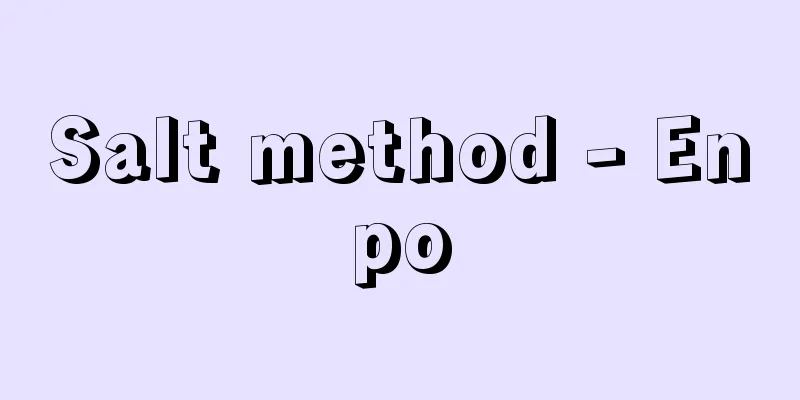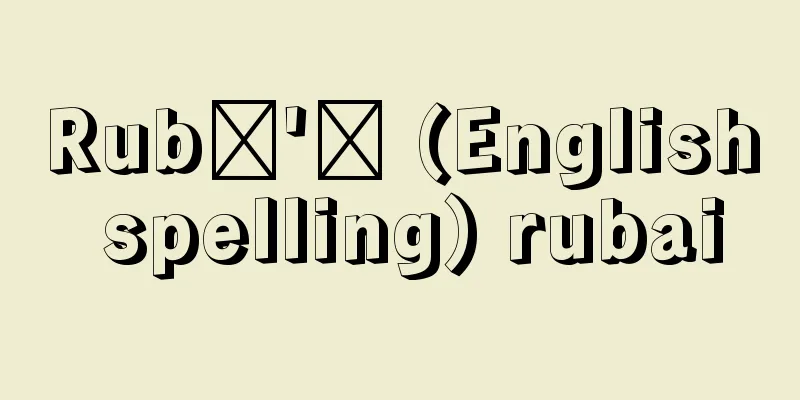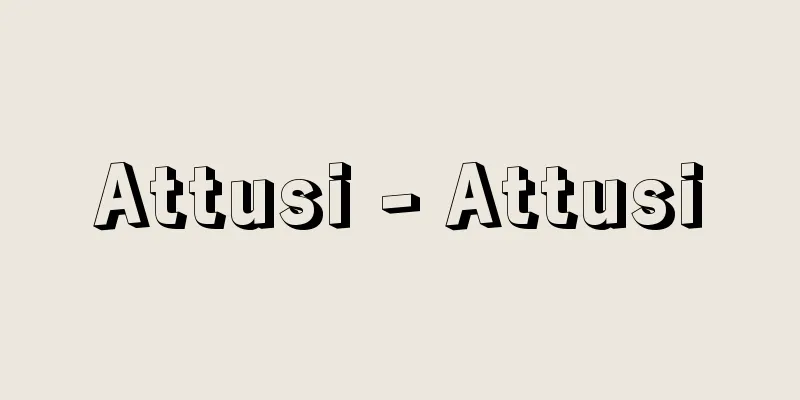Salt method - Enpo

|
A criminal code enacted in China to crack down on the smuggling of salt. Emperor Wu of Han had spent a lot of money on foreign campaigns and civil engineering works, leading to financial difficulties, so in 119 BC, he established a salt monopoly. This was the first salt monopoly in China. After that, it was repeatedly established and abolished, but in 758, under Emperor Suzong of the Tang, the monopoly was reinstated, and continued for over a thousand years. In order to maintain the salt monopoly, it is difficult to secure revenue from the monopoly without cracking down on smuggling. The Salt Law was enacted for this purpose. It was already enacted under Emperor Wu of Han, but it was not until the Song dynasty that it was almost fully implemented. In China, dictatorship had developed from the Five Dynasties at the end of the Tang Dynasty, and was established during the Song dynasty, and was supported by revenue from the salt monopoly. The foundation of dictatorship was a huge army and bureaucracy. Therefore, guaranteeing their livelihood became an important responsibility of the autocratic monarch. However, since the previous direct taxes, i.e. taxes collected from the land, were not enough to cover these huge expenses, they tried to cover these expenses by using the income from the monopoly of daily necessities such as tea, salt, iron, alcohol, and alum, especially salt. This led to tea and salt being monopolized. When salt was monopolized, the price skyrocketed by several dozen to a hundred times. As a result, from the Song dynasty to the Qing dynasty, the income from the salt monopoly accounted for one-third to one-half of the total national revenue, sometimes reaching as much as 80%. When a nation's finances were in a tight spot, it was easy to pass on the shortage to the price of salt, which caused the price to skyrocket. The sudden rise in salt prices caused hardship for the people, and they wanted to buy cheap salt if it was available. So some cunning people tried to make huge profits by smuggling salt. Official salt was expensive and of poor quality. In contrast, smuggled salt was of good quality and only half the price of official salt. This led to the rampant sale of illegal salt, and the monopoly revenue suffered a blow. The government tried to crack down on the smugglers by making the salt law even stricter. However, the smugglers also ganged up with each other, forming secret societies to smuggle salt. At times, several thousand or even 10,000 people would go out smuggling salt, carrying weapons. Many low-ranking government officials and military officers were members of these secret societies, and it was easy for them to obtain information from the government, so they could easily pass strict customs inspections with bribes and avoid being raided by the authorities. They were called salt dealers, salt bandits, or salt owls, and when political discipline weakened or oppression became too strong, they rose up and rebelled. This is why there have been so many rebellions even in peacetime since the Song dynasty. Some of the rebels were emperors who opened the country to the world. Zhu Quanzhong, the founder of the Later Liang dynasty during the Five Dynasties, and Zhu Yuanzhang, the founder of the Ming dynasty, were leaders of salt smugglers. This shows just how powerful the influence of salt smugglers was. Salt laws became more meticulous and detailed as time went on. Before the Tang dynasty, medieval law was based on Confucianism and focused on maintaining order in the family and the social hierarchy, and those who violated this were severely punished. However, from the Song dynasty onwards, the emphasis of law shifted to cracking down on those who violated the economic controls of dictatorial governments, such as the salt monopoly, and violators were given heavy sentences. The Salt Law is a typical example of criminal law that distinguishes the Middle Ages from the early modern period. [Tom Saeki] "Research on the Salt Politics of the Qing Dynasty by Tomi Saeki (1956, Oriental History Research Society)" Source: Shogakukan Encyclopedia Nipponica About Encyclopedia Nipponica Information | Legend |
|
中国で、塩の密売を取り締まるために制定された刑法。漢の武帝(ぶてい)は外征や土木工事などに多額の経費を費やし、財政が窮迫したため、紀元前119年、塩の専売を始めた。中国における塩専売の最初である。以後、置廃が繰り返されたが、758年唐の粛宗(しゅくそう)のときふたたび専売が始められ、その後、千百数十年にわたって専売が続けられた。塩の専売を維持するためには、密売を取り締まらなければ、専売収入を確保することがむずかしい。この目的のために塩法が制定された。漢の武帝のときすでに制定されたが、ほぼ完備したのは宋(そう)代である。中国では唐末五代から独裁政治が発達し、宋代にいちおう確立し、それを支えたのが塩の専売収入であったからである。独裁政治の基盤は膨大な軍隊と官僚とであった。そこで彼らの生計を保障することが、独裁君主の重大な責務となってきた。ところが、これまでの正税、つまり土地から徴収する租税では賄いきれないので、茶、塩、鉄、酒、明礬(みょうばん)などの日用必需品、ことに塩の専売収入によって、この膨大な経費を捻出(ねんしゅつ)しようとした。ここから茶、塩などが専売にされた。塩を専売にすると、値段は数十倍から100倍にも暴騰した。その結果、宋代以後清(しん)代まで、塩の専売収入は国家の全歳入の3分の1から2分の1を占め、ときには80%にも達した。国家の財政が窮乏すると、とかくその不足を塩価に転嫁しがちで、そのために塩価がうなぎ上りに高くなった。 塩価の暴騰は人民を苦しめ、安価な塩があればそれを求めようとする。そこで狡猾(こうかつ)な人間は、塩を密売して莫大(ばくだい)な利益をあげようとする。官塩は高価なうえに質が悪い。それに反して密売塩は質がよく、値段も官塩の半価であった。ここから闇(やみ)塩が横行し、専売収入が打撃を受けた。そこで政府はますます塩法を厳重にして、密売者を取り締まろうとした。しかし、彼らも互いに徒党を組み、秘密結社を結成して密売を行った。ときには数千ないし1万人に及ぶ者が、武器を携帯して密売に出かけた。役所の小役人や下級の軍人には秘密結社の入会者が多く、役所の情報入手も容易であったので、税関の厳重な検査も賄賂(わいろ)で難なく通過し、官憲の討伐も免れることができた。彼らは塩徒、塩賊、塩梟(えんきょう)とよばれ、政治の綱紀が緩み、あるいは弾圧が強くなると、決起して反乱を起こした。宋代以後、平時においても反乱が多いのはこのためである。この反乱者のなかから開国の天子も現れた。五代後梁(こうりょう)の太祖朱全忠(しゅぜんちゅう)や明(みん)の太祖朱元璋(しゅげんしょう)らは、塩の密売者の統領であった。塩の密売者がいかに大きな勢力をもっていたかが察せられる。 塩法は時代が下るとともに周到細密になった。唐代以前、中世の法律は、儒教主義により家族や社会の上下の秩序を維持しようとすることに重点があり、それを犯す者は重く処罰された。ところが宋代以後では、塩の専売など、独裁政治の経済統制を破る者をいかにして取り締まるかということに法律の重点が移り、破る者は重刑に処せられた。塩法は中世と近世とを区別する典型的な刑法なのである。 [佐伯 富] 『佐伯富著『清代塩政の研究』(1956・東洋史研究会)』 出典 小学館 日本大百科全書(ニッポニカ)日本大百科全書(ニッポニカ)について 情報 | 凡例 |
>>: Marginal labor force - Enpenroudouryoku
Recommend
indirect democracy
Direct democracy is a system in which the people ...
STP - STP
Abbreviation of Spanning Tree Protocol. A protocol...
Trough of atmospheric pressure - Trough of atmospheric pressure
…However, if we know the flow and temperature fie...
Hopkins, L.
...guitar), Robert Johnson (1912?-38, guitar), a ...
For thin use - Thin
…It refers to very thin ganpi paper, and is also ...
Kinihoff, JH
...The results of the Edo period's acceptance...
Early Spring type - Early Spring Kei
...The majority of varieties currently available ...
Chandragupta II - Chandragupta
The third king of the Gupta dynasty in India (reig...
Ibbi-Sin (English spelling)
...Later, his son (or brother) Ur-Nammu gained in...
Hanno [city] - Hanno
A city in southern Saitama prefecture. It was inco...
Komunmoru Ruins - Komunmoru Ruins (English spelling) Kŏmǔnmoru‐yujŏk
This limestone cave site is located on the souther...
John Wesley
The founder of the Methodist Church, one of the m...
Basal metabolism
The metabolism during waking and complete rest (b...
Volvox
An alga of the family Vulgaris, order Vulgariales....
Onisuge - Onisuge
A perennial plant of the Cyperaceae family (APG c...









